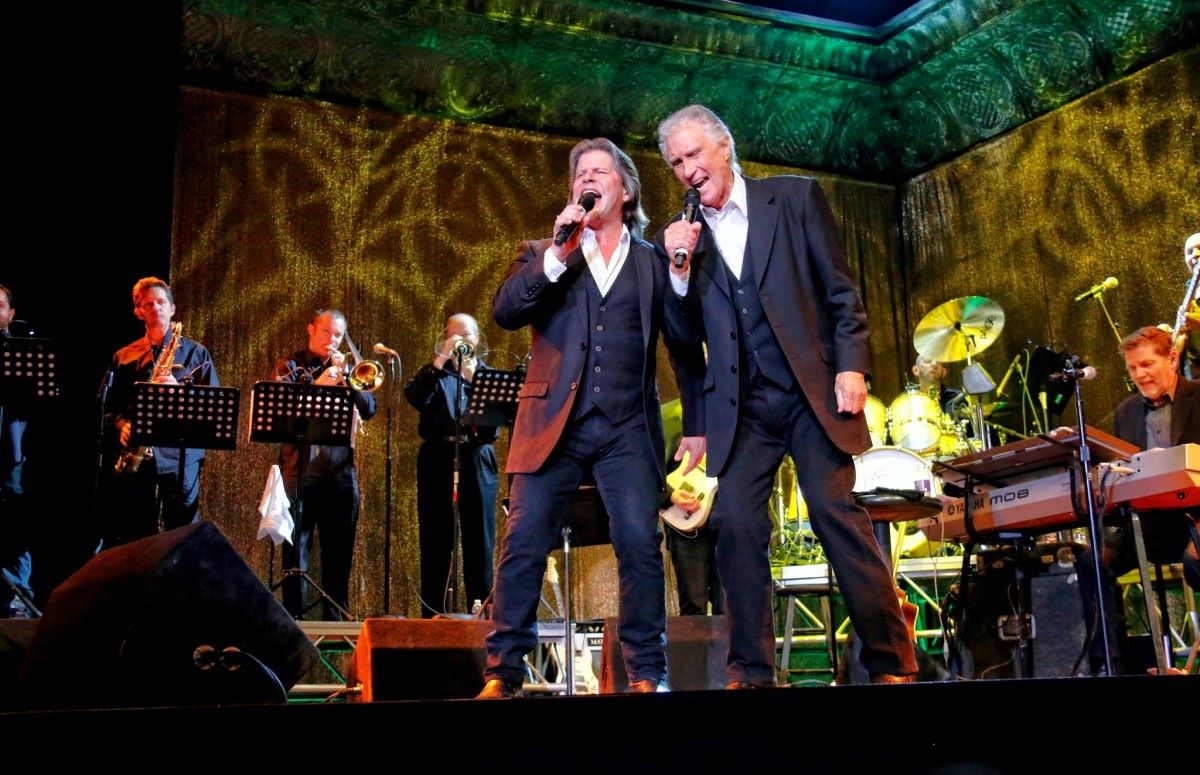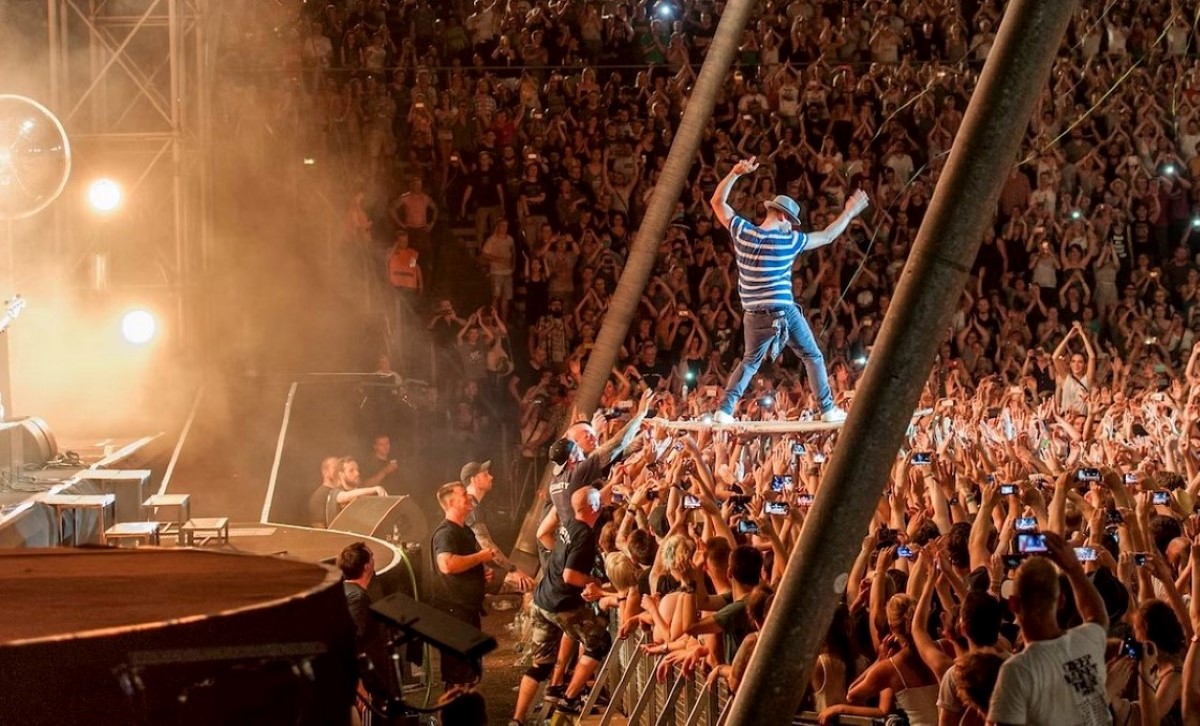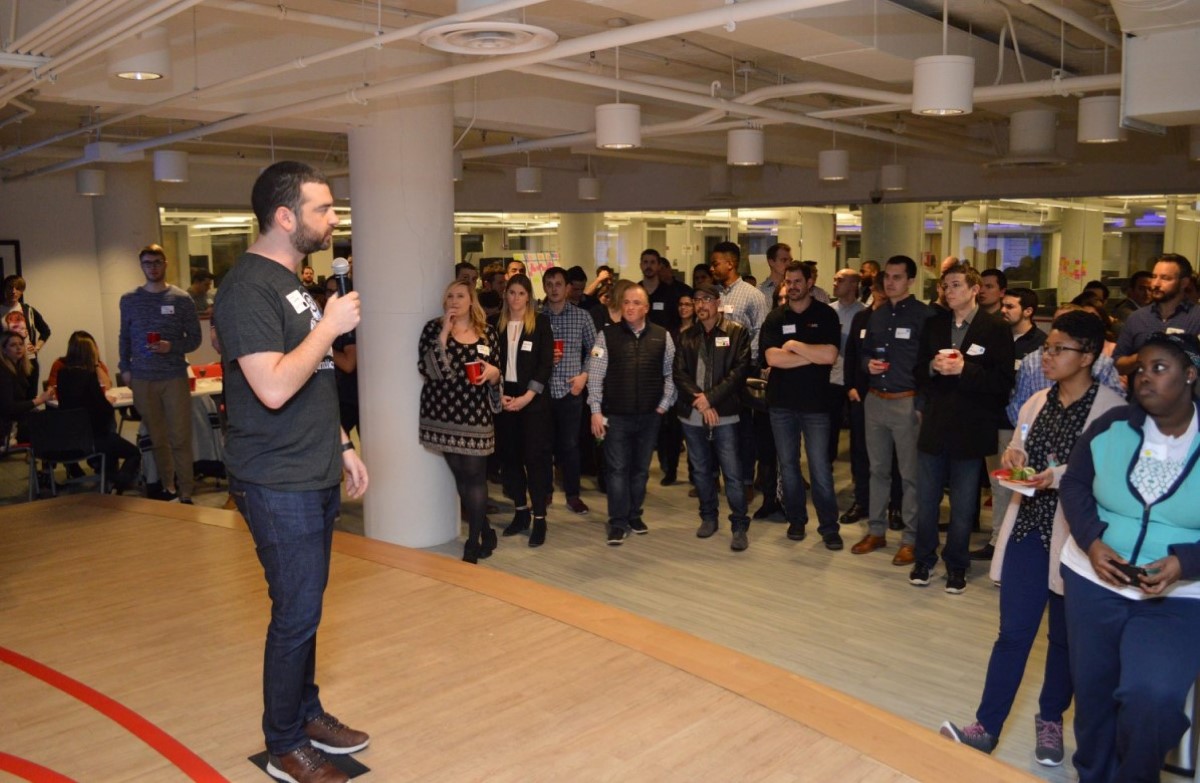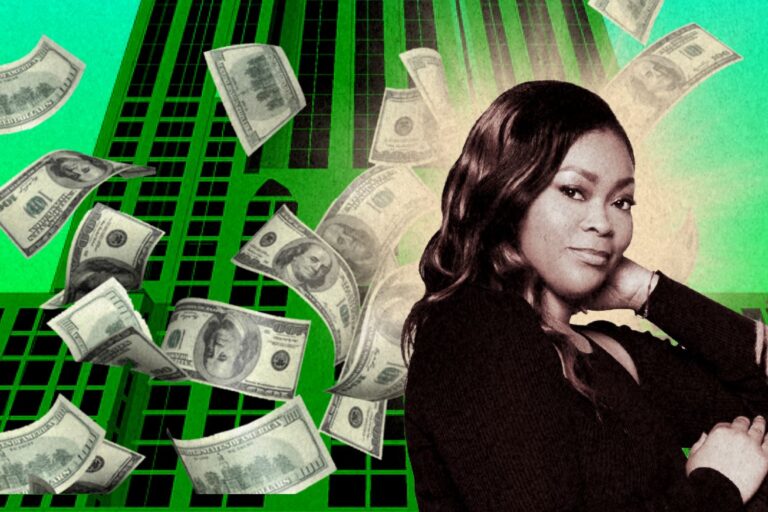Venue Hosts & Ticketmaster: Never-Ending Saga of Monopolistic Practices in Ticketing Scene
Ticketmaster is a leading ticket sales and event management company, offering services for a wide range of live entertainment events such as concerts, theater shows, sports events, and more. The company originated in 1976 as a means for colleges to distribute concert tickets on their grounds.
According to Yale University reports, Ticketmaster holds a significant market share in the ticketing and live event industry, with over 70% control, and even more for live concerts, making it a dominant player in the market. However, its dominance has raised concerns about potential abuses of market power and resulting harm to customers. Ticketmaster has faced widespread criticism and hatred from customers over the years. This is due to a number of factors and let’s figure them out!
Ticketmaster As a Subject of Several Heated Controversies
One of the main reasons why Ticketmaster is widely hated is due to its high service fees. In addition to the cost of the ticket itself, Ticketmaster often charges additional fees for processing and handling, which can add a significant amount to the overall cost of a ticket. These fees have been a source of frustration for many consumers, who feel that they are paying an excessive amount just to attend an event.
Another concern is Ticketmaster’s market power. Because Ticketmaster controls such a large portion of the ticketing market, it has the ability to set prices and determine the availability of tickets, claimed to exert its status as a monopoly. This has raised concerns about the potential for anti-competitive practices, such as price gouging and limiting the availability of tickets to drive up prices.
These concerns have led to several investigations and lawsuits against Ticketmaster over the years. In some cases, the company has been accused of using its market power to engage in anti-competitive behavior, such as price fixing and limiting the availability of tickets. There have also been allegations of price gouging, where Ticketmaster has been accused of charging excessive prices for tickets during high-demand events.
In response to those above, some regulators have taken action to limit Ticketmaster’s market power and prevent anti-competitive practices. For example, some countries have introduced regulations to limit the fees that ticketing companies can charge, and others have imposed penalties for anti-competitive behavior.
Besides, Ticketmaster has been accused of enabling these practices by allowing third-party resellers to purchase large quantities of tickets and sell them at inflated prices. This is often achieved through the use of automated software programs that can quickly purchase large numbers of tickets before they are available to the general public. As a result, many consumers are unable to purchase tickets at face value, and must instead pay much higher prices on the secondary market.
Critics argue that Ticketmaster is complicit in this scalping and price gouging, as they allow resellers to purchase tickets through their platform and then collect a fee for each sale. Some have even argued that Ticketmaster has a financial incentive to allow scalping, as the company profits from both the initial ticket sale and the subsequent resale.
What’s more, the ticketing king has triggered many allegations of predatory pricing, questionable kickbacks, and merciless retaliation against players who challenged its champion status.
The Fight for Fair Ticket Prices: Advocacy Voice from Bif Name Pearl Jam and Taylor Swift

In 1994, Pearl Jam was one of the biggest rock bands in the world and had a large and dedicated fan base. However, they were unhappy with the high service fees that Ticketmaster, the dominant ticketing company at the time, charged on top of the ticket price. These fees could be as much as 25% of the ticket price, which Pearl Jam felt was unreasonable and made tickets too expensive for their fans.
Speaking of it, Pearl Jam said, “We believe that Ticketmaster has a stranglehold on the concert industry and that they are using their monopoly to gouge both consumers and performers.” They also called for greater competition in the ticketing sphere and for ticket prices to be more transparent and fairer.
In response, Pearl Jam decided to bypass Ticketmaster and try to do a tour without using their services. They planned to partner with independent ticketing companies and sell tickets directly to fans. This was a bold move and was seen as a challenge to Ticketmaster’s monopoly on the ticketing landscape.
Nevertheless, Ticketmaster shockingly responded by refusing to allow venues that they controlled to book concerts by Pearl Jam, effectively blacklisting the band. This caused a public outcry and a lot of negative publicity for Ticketmaster. The Federal Trade Commission even launched an investigation into the company’s practices, although the investigation was later dropped.
In the end, Pearl Jam was unable to do the tour without Ticketmaster and had to use their services. The band’s efforts, however, brought attention to the issue of high service fees and helped to spark a conversation about ticket pricing and ticketing industry practices.
The US Department of Justice (DOJ) and Pearl Jam also submitted a Memorandum claiming that Ticketmaster has a “virtually absolute monopoly on the distribution of tickets to concerts”. Pearl Jam alleged that Ticketmaster had been indulging in “anti-competitive practices”, and a lawsuit from Pearl Jam against the company followed. However, the lawsuit never gained traction.
Over the years, Pearl Jam has continued to speak out about these issues and has been a strong advocate for change in the ticketing industry. In a 2019 interview with Rolling Stone, lead singer Eddie Vedder said, “We were trying to fight against Ticketmaster and their monopoly on the ticketing industry, and we still are.” He went on to say that the band is still committed to finding ways to make ticket prices more affordable for fans.
Another eminent figure – Taylor Swift – also has publicly criticized Ticketmaster in the past. In 2015, Taylor Swift wrote an open letter to Apple Music”, “I write this to explain why I’ll be holding back my album, 1989, from the new streaming service, Apple Music. I feel this deserves an explanation because Apple has been and will continue to be one of my best partners in selling music and creating ways for me to connect with my fans. I hope that soon I can join them in the progression towards a better music industry, one where artists are paid fairly for their work, and fans can listen to whatever they want without being held hostage by corporate interests.”
In this quote, Taylor Swift’s criticism of Ticketmaster and her advocacy for reform highlights the ongoing need for improvements in the ticket purchasing process to ensure a better experience for fans and customers.
More remarkable, recently, in January 2023, U.S. senators criticized Ticketmaster, for its handling of ticket sales for Taylor Swift’s “Eras” tour. The company was accused of lacking transparency and failing to prevent bot purchases of tickets, leading to a major fiasco for the tour.
Experts have noted that Ticketmaster controls more than 70% of the market share of primary ticket services for major U.S. concert venues, which has drawn criticism from fans and lawmakers alike. The Senate hearing highlighted the ongoing concerns surrounding the ticketing industry and the need for greater transparency and accountability from companies like Ticketmaster.
During the U.S. Senate Judiciary Committe, Joe Berchtold, expressed his apologies to both Taylor Swift and the fans. He admitted the company’s shortcomings and pledged to improve its services by saying, “We acknowledge that we need to do better, and we will do better.”
The Push from Ticketmaster to Force Venues to Accepting Ticketmaster Platform

For many quarters, Ticketmaster has been using its power to pressure venues to sell tickets through its platform, which has been met with criticism. By mandating the use of its platform, Ticketmaster has been able to charge exorbitant fees, control the entire ticketing process, and offer additional services to clients at the expense of both venues and customers.
“Ticketmaster’s market power over live events is ripping off sports and music fans and undermining the vibrancy and independence of the music industry,” said Sarah Miller, executive director of the American Economic Liberties Project.
“With new leadership at the DOJ committed to enforcing the antitrust laws, our new campaign helps connect the voices of fans, artists and others in the music business who are sick and tired of being at the mercy of Ticketmaster’s monopoly with enforcers who have the power to unwind it.”
There have been reports in the past that Ticketmaster has used exclusive contracts with venues to ensure that they adopt Ticketmaster’s ticketing platform, effectively pushing out other competitors in the market. This has been a point of contention for many artists, including Pearl Jam, as mentioned above.
Despite their reservations about Ticketmaster, Pearl Jam has had to work with the company in order to sell tickets for their concerts. This is because Ticketmaster is the largest ticketing company in the world and has exclusive contracts with many of the largest venues and promoters.
In a 2006 interview with Rolling Stone, Pearl Jam’s guitarist Stone Gossard said, “The idea that one company has all the levers, and you have to do it their way, that’s not fair to the fans, it’s not fair to the bands, it’s not fair to anybody.”
Ticketmaster has been accused of anti-competitive behavior in the past, including a 2010 class-action lawsuit alleging that the company exercising its market power to overcharge consumers for tickets. Ticketmaster settled the lawsuit for $400 million and changed some of its business practices in response.
Since then, Ticketmaster has continued to face criticism over its fees and ticketing practices!
The “Dark Knight” of Allies – Live Nation and Ticketmaster

Live Nation and Ticketmaster have had a controversial history as the two biggest players in the live event and ticketing industry. In 2010, Live Nation and Ticketmaster merged to form Live Nation Entertainment, leading to concerns about anti-competitive behavior and monopolistic practices in the industry. Critics argued that the merger would give Live Nation Entertainment too much control over the live event and ticketing market, leading to higher prices and fewer options for consumers.
In response to these concerns, the Department of Justice imposed certain conditions on the merger, including the requirement that Live Nation divest some of its ticketing assets to a competitor, which led to the formation of AEG Presents’ ticketing platform, AXS.
Since the merger, Live Nation Entertainment has continued to dominate the live event and ticketing industry, with Ticketmaster remaining the largest ticketing platform in the world. The two companies have faced criticism and lawsuits over issues such as high-ticket fees, exclusive ticketing deals, and alleged anti-competitive behavior.
Bruce Springsteen, a well-known musician, was particularly upset with Ticketmaster’s practices. In a letter to his fans in 2009, Springsteen expressed concern that the merger between Ticketmaster and Live Nation would make the situation even worse for fans. He believed that the merger would create a near monopoly situation in music ticketing, meaning that there would be very little competition and fans would have even fewer options.
Despite his concerns, it’s worth noting that Springsteen’s current tour listings include dates with Ticketmaster listings. This suggests that while he may have had concerns about the merger and Ticketmaster’s practices in the past, he may have ultimately decided that using Ticketmaster was still the best option for his fans to purchase tickets to his concerts.
Live Nation can choose to boycott a venue if it decides not to use Live Nation’s services. This can be very detrimental to the venue’s survival, as Live Nation holds a significant portion of the market for concert promotion and has the power to determine whether or not a venue can book performers who have contracts with Live Nation.
The Rise of ‘Insiders’ in the Arena

The live event and ticketing industry is a complex and dynamic space, with numerous players employing unique leadership and business strategies to compete and thrive.
While Live Nation and Ticketmaster have faced criticism for their business practices, others have established themselves as leaders by constantly innovating and adapting to the changing landscape of the industry.
Let’s explore the approaches of some top companies in this space to gain insights into what it takes to succeed in this fast-paced and ever-changing field!
#1. Seat Geek – The Call from New York Underground
Customers can use Seat Geek to look up and compare ticket costs for sporting events and musical performances all throughout the country. A money-back guarantee, on-time delivery of your tickets, and transparent pricing are all appealing features of SeatGeek.
Similar to other search engines, SeatGeek searches for tickets across the internet and compiles them in user-friendly desktop and mobile platforms. It has been called “the smart way to buy tickets” because of its time-saving features and user-friendly design. SeatGeek stands apart in the live entertainment ecosystem. In a constantly evolving ticketing landscape where clubs and fans are seeking greater flexibility and interaction, the firm is leading innovation.
As recently revealed in February 2023, the platform will take place as the MLB’s official reseller. Financial details weren’t made public, but according to sources in the business, the pact is a revenue-sharing arrangement that will pay the league about $100 million year over a five-year period.
#2. TicketCity – The Austin Cowboys and You
Customers can purchase tickets from TicketCity’s large variety of worldwide events either online or by calling the company’s customer service department. Additionally, the business offers a 100% guarantee on all tickets bought through its platform, making sure that consumers get authentic tickets that are valid for entry to the event.
TicketCity has earned a spot on our list of the top websites to buy tickets for sporting events and concerts. It’s not the best option because it’s neither the cheapest nor the slickest, but its ticket costs were lower than other rivals.
One thing has to be said that TicketCity offers good customer service since the agent was very helpful, knowledgeable, a good listener, speaking clearly and going over the top to make sure their buyers are happy. In 2023, TicketCity has released myriad coupons and promo codes to get audience chances to buy ticket at steal prices.
#3. VividSeats – The Unmissable Events in Chicago
The Chicago-based company, founded on the tenet that everyone should “Experience It Live,” offers exceptional value by offering one of the largest selections of events and tickets in North America as well as an industry-leading Vivid Seats Rewards program where all customers can earn rewards for every purchase. Some of the largest names in the entertainment business, including ESPN, Rolling Stone, and the Los Angeles Clippers, have selected Vivid Seats as their official ticketing partner.
Vivid Seats drives the consumer and corporate ecosystem for live event tickets with its proprietary software and distinctive technologies, enabling the unifying force of shared experiences. Newsweek named Vivid Seats as one of the top ticketing companies in America for customer service.
This agent also knows how to enhance its public picture by doing charity and lending a helping to children with critical illnesses. This can draw positive attention from people and make them purchase, not just because they want to buy tickets, but it’s also a way to connect and share.

#4. Stubhub – That San Francisco-based Guy Who Conducts Your Concert
With its online platform, the Stubhub website provides tickets and resale tickets to its clients. You can acquire tickets through their websites for a countless number of various theater performances, concerts, and sporting events. Customers can use this to resell concert or football tickets they no longer want to attend or to buy resale tickets for events that are sold out.
Stubhub has an international presence, so their company has websites for their European, UK, and US markets. They also have a master site where you can select tickets by location, instead of having to go to a particular site.
Due to their longevity and strong brand recognition, StubHub enjoys a significant competitive advantage. Despite a storm that’s no longer severe, this agent seems to plan for a return that disrupts the industry in 2023.
#5. TicketLiquidator – Why Worry about Hard-to-find Tickets
One of the busiest secondary ticketing websites is TicketLiquidator, which has a ticket inventory of more than 4 million for more than 83,000 events. In North America, Canada, and Europe, TicketLiquidator offers difficult-to-find tickets for sporting, musical, and theater events.
The typical ticket broker, Ticket Liquidator acts as a middleman between buyers and sellers of tickets. You can find tickets for major sports, theater, or concert events as well as small, lesser-known performances locally.
When you purchase from TicketLiquidator, they offer you a whole lot more than just tickets to sporting, musical, comedic, and concert events. The ticketing platform gives customers access to additional customer care solutions to enhance and optimize your order experience.
Bottom Lines
The difficulty for this year is that everyone will likely be subject to regulatory oversight. A new ticketing rule that requires all-in pricing and disclosure of the original sale price of the ticket being resold was just passed in New York. The Department of Justice and the Federal Trade Commission are investigating ticketing procedures. Buccaneering is not appropriate now. At this point, the industry is developing into a competitive oligopoly, where a select few major competitors dominate and no one else has that much power.
The battle in the short future will probably be over exclusivity, and in that game, those with the best access to finance do not always prevail over those who can offer insights that meet customer needs. Ticketmaster seems to confront a big tsunami of criticism and downturn, and as more hunters are speed up their executions to dominate the industry by any possible way. Despite all these, the future of Ticketmaster is not in our words, but in the next movement of this agent that will say it all.









